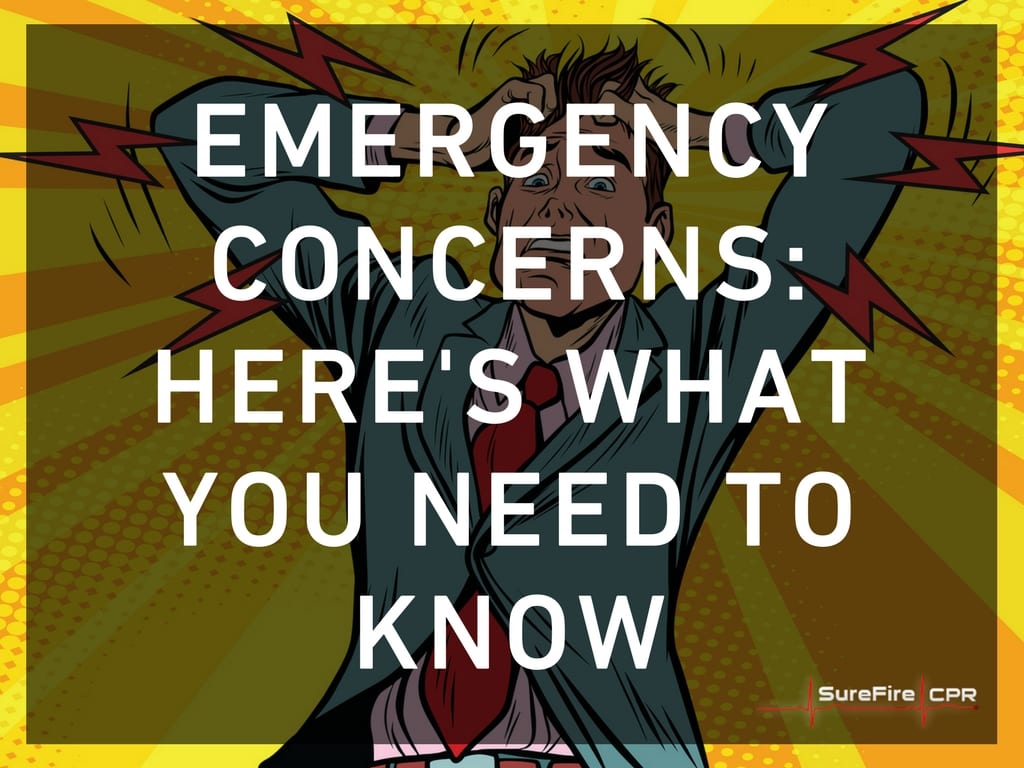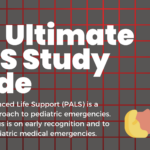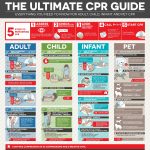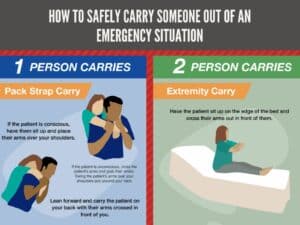In an emergency situation, what are your biggest concerns? A recent Instamotor survey of more than 2,000 California residents examined this question in detail, and key findings from the survey included:
-
Earthquakes (33%) topped the list of emergency concerns among respondents, followed by terrorist attacks (29%).
-
53% of respondents said they are not prepared to deal with emergencies.
-
50% noted they are “very concerned” and 33% are “somewhat concerned” about potential emergencies.
There is a lot to consider during emergencies. Meanwhile, if individuals know exactly what to do in emergencies, they may be able to limit the impact of these critical situations.
To better understand the importance of emergency preparedness, let’s take a closer look at three types of emergency situations.
-
Evacuations
Hurricanes, earthquakes, wildfires and other natural disasters can cause massive amounts of destruction and devastation in short periods of time. They also may force people to think and act quickly to establish priorities and evacuate their houses.
Just consider Gary Nosacek of the Milwaukee Guild Catholic Medical Association. A few years ago, Nosacek and his wife were visited by a TV reporter and photographer who installed miniature cameras throughout their home. Next, an American Red Cross representative arrived and told the couple that they were under a mandatory evacuation order. Nosacek and his wife were given 10 minutes to vacate their home, and the scramble to pack began. When time ran out, the Red Cross representative examined the final results of the evacuation and provided feedback.
Thankfully, Nosacek and his wife were only participants in an evacuation drill. But the stress and anxiety of hurrying to pack up personal belongings in just a matter of minutes were real, Nosacek said, and these issues lingered for several days after the evacuation drill. Also, Nosacek and his wife remembered what they did not pack and had to remind themselves that the evacuation was just an exercise.
What is the key takeaway from Nosacek’s experience? Knowledge is power, particularly when it comes to evacuations. And if people prepare for evacuations, they can limit the stress and anxiety commonly associated with rushing to pack and vacate their homes as quickly as
Preparing for an evacuation is no easy task. However, those who allocate the necessary time and resources to get ready for an evacuation may be able to alleviate stress and anxiety during this high-pressure situation.
Some of the best ways to prep for an evacuation are:
-
Put together a grab-and-go kit. A grab-and-go kit should include water, food and first aid essentials. It also should be easy to access in the event that you need to rush out the door due to an evacuation.
-
Keep your important documents together. Place medical records, passports and other important documents in a plastic, waterproof case. Then, in an evacuation, you can grab this case and have all of your important documents with you as you vacate your house.
-
Prepare your pets. Micro-chip your pets and ensure they have ID collars. Additionally, it generally is a good idea to prepare a grab-and-go kit that includes pet food, medications and other pet essentials.
If you are forced to evacuate your home, there is no need to delay. Prepare for evacuations now, and if you face official orders to evacuate, you can seamlessly vacate your premises.
-
Robberies
A robbery is a dangerous situation that people want to avoid at all costs. As such, few people prepare for robberies, despite the fact that doing so could prove to be the difference between life and death.
Robbery preparedness is vital, and to understand why, let’s consider Joanna Douglas of home cleaning company Clean Affinity. Douglas was the victim of a home robbery where robbers were only a floor away from her and her children. At this point, all Douglas could think about was what she could do to protect her family, she said.
Fortunately, Douglas sought help. She saw the telephone on her dresser and called the police while the robber was in the other room. By doing so, Douglas was able to get the emergency support that she needed, precisely when she needed it.
Although there likely is little that can be done to safely stop a robbery in progress, there is plenty that you can do to prepare for a robbery, such as:
-
Lock the windows and doors. Oftentimes, robbers enter a house via unlocked windows and doors. If you lock your home’s windows and doors consistently, you can make it difficult for robbers to enter your house.
-
Don’t open your door to anyone that you don’t know. It is always better to err on the side of caution. Thus, you should never open your door to anyone that you don’t know.
-
Install home exterior With home exterior lighting in place, you may be able to reduce the risk of a nighttime robbery.
If you believe a robber has entered your house, don’t wait to get help, either. Like Douglas, you should try to contact the police immediately. You also should stay on the phone until police officers are dispatched to your house and lock the door of your room until these officers arrive on scene.
-
Terrorist Attacks
From the Sept. 11 attacks to the November 2017 Manhattan truck attack, terrorist attacks range in size and severity. Regardless of how and where these attacks take place, they strike fear into the hearts of individuals across the globe.
There is no telling when and where a terrorist attack might occur. But those who prepare for terrorist attacks may be able to minimize the impact of these life-threatening situations. Perhaps most important, those who know how to respond to a terrorist attack may be able to reduce the loss of life during this incident.
Some of the best ways to prepare for terrorist attacks are:
-
Create a communications plan. Enlist an out-of-town family member to serve as the primary contact for a household emergency communications plan. If a terrorist attack takes place, this family member can contact each member of your household to verify his or her safety.
-
Determine a central meeting place. Establish a central location where you and members of your household can meet if you are separated during a terrorist attack.
-
Learn basic first aid. Those who can provide basic first aid may prove to be life-savers to terrorist attack victims.
If a terrorist attack occurs, one of the best things to do is follow the advice and guidance of local officials. Furthermore, try to remain patient throughout the attack, and you may be able to boost your chances of survival.
How to Address Emergency Concerns
As the aforementioned emergency situation examples show, emergencies can affect anyone, at any time. Luckily, there are many ways to address emergency concerns, and these include:
-
Stay calm. Let’s face it – panic often is an individual’s first response to an emergency. If a person knows how to stay calm, cool and collected, this individual can increase the likelihood of delivering the best-possible emergency response.
-
Maintain communication. Roman Zrazhevskiy of survival kit and emergency supply provider Ready to Go Survival notes lack of communication with loved ones ranks among his top concerns in emergencies. Setting up a family communication plan offers an ideal solution to address this concern. In fact, a family communication plan that include a primary point of contact ensures loved ones will know whom to contact if they are separated.
-
Think about what you will need to survive in an emergency. Running out of food and water is a primary concern that people face in emergencies. If you have sufficient food, water and other emergency supplies that will last at least a few days, you can ensure basic survival during an emergency.
-
Plan for the worst-case scenarios. It typically is a good idea to over-prepare for an emergency. If you assess the worst-case scenarios, you can determine the best steps to prep for a wide range of critical situations.
-
Enroll in emergency preparedness classes. Classes can teach individuals everything they need to know about emergency preparedness. These classes are available nationwide and empower individuals with actionable insights that they can use in emergencies both now and in the future.
Emergency concerns can escalate quickly, particularly for those who are unprepared for life-threatening situations. For employers, creating thorough checklists or safety instructions, can help save lives. Remember, if people understand various emergency concerns, they can effectively manage emergencies of all sizes.











